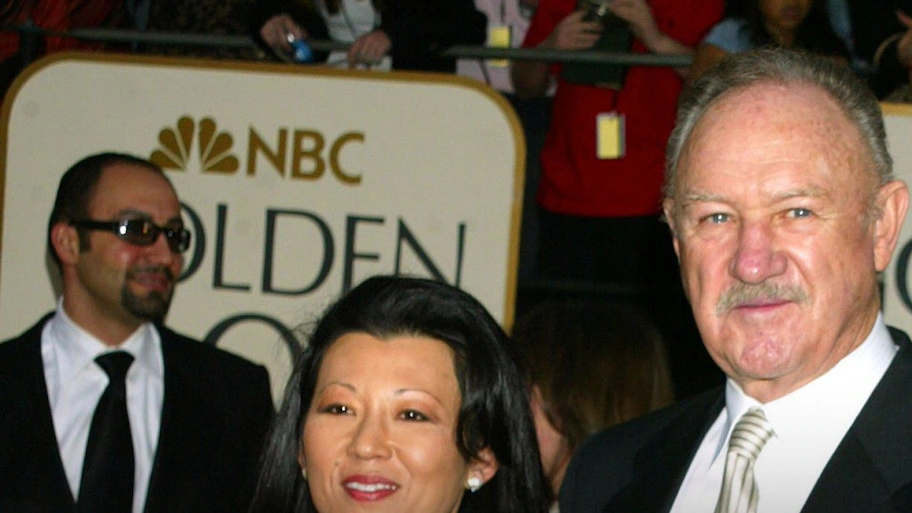If it takes a village to raise a happy child, how many people does it take to give their elderly, infirm father a dignified death?
And what does it say about our hyper-connected world that the old and dementia-ridden continue to die alone and confused because looking after them is seen as someone else’s job?
“Caregivers need care too,” said Emma Heming Willis this week, the wife-turned-carer of cinematic icon Bruce Willis. “They are vital, and it is so important that we show up for them so that they can continue to show up for their person. I think there’s this common misconception that caregivers, they got it figured out, they got it covered, they’re good.”
And so, all too often, the world withdraws, tiptoes away and lets them get on with it, their consciences salved by this sticking plaster.
Heming Willis is 46 and has daughters Mabel, aged 12 and 10-year-old Evelyn with Die Hard superstar Willis, 69. He was diagnosed with frontotemporal dementia in 2023, and his condition has rapidly worsened; what began as an apparent return of his childhood stutter has reached the stage where he is non-verbal.
How difficult it is to imagine wisecracking Willis, funny and tough on- and off-screen, as helpless. It would be tasteless to suggest there is a hierarchy of suffering, but in truth there is a unique cruelty to dementia which robs the individual of everything that once defined them.
There’s currently a harrowing ad campaign by the Alzheimer’s Society entitled The Long Goodbye, which has reduced many people I know to tears, myself included.
It features a mum, who in the words of her son, is dying many times over as she loses her ability to prepare her legendary roast, as her fashionista passion for clothes falls away, as she refuses to celebrate Christmas, and most heartbreaking of all, forgets the name of her own child.
On the brink of her very final death, “she looks straight through her husband”. It’s a hard watch – but a necessary one. According to the charity, one in three people born in the UK today will get dementia.
It’s Britain’s biggest killer; almost a million people in the country live with it at present, an estimated 120,000 of whom live alone. But even having someone at home is no fail-safe guarantee of care.
Willis’ wife was prompted to speak out in the wake of the tragic death of another screen great, Oscar-winner Gene Hackman, in the most unthinkable of circumstances. Last month, the 95-year-old and his 65-year-old wife Betsy Arakawa were found in their Santa Fe home, dead in different rooms.
After early speculation of a gas leak, it transpired that she died on Feb 11 after contracting a rare disease spread by mice called hantavirus pulmonary syndrome. As her body began to decompose, we know from his pacemaker activity that Hackman, who suffered from heart issues and was in the grip of advanced Alzheimer’s, was still mobile, presumably agitated and confused.
Did he even know his wife had died? He was certainly unable to use a phone to raise the alarm. He died a week later, on Feb 18, from heart disease.
God only knows the horror, the suffering, the terror that house witnessed as wife and husband endured their final days, hours, minutes alone. When they were discovered on Feb 26, it was by maintenance workers from their gated community.
After news of Hackman’s death, his daughters Elizabeth, 62, and Leslie, 58, and granddaughter Annie, released a statement saying they were “devastated”.
“He was loved and admired by millions around the world for his brilliant acting career, but to us, he was always just Dad and Grandpa,” the statement read. Later, Leslie told the press that she was “close” to her father but that they hadn’t spoken for a few months.
With hindsight, it is easy to cast aspersions. Is it really such an imposition to check in every day? Some might think so. Others (admittedly a lot fewer) might regard it as a daily duty, happily discharged.
It would be hypocritical, however, to accuse Hackman’s children of neglect; they thought he was in the safest of hands. Who would have imagined his wife, three decades younger, would contract a rare virus and, unable to summon help, die on the bathroom floor?
I have so many friends frantically juggling career, family life and elderly parents who need increasing amounts of support. Their humane reactions to this faraway tragedy have, to their credit, been there-but-for-the-grace acknowledgement rather than condemnatory.
But now we know the worst-case scenario, we can’t pretend otherwise. As Heming Willis pointed out in her video, which she posted to Instagram, she normally wouldn’t comment on a private issue: “But I do really believe that there is some learning in this story, in regards to this tragic passing of Mr. and Mrs. Hackman.”
It is unlikely that she and her husband will be abandoned; they both have a warm relationship with Bruce’s ex-wife, Demi Moore, 62, mother of his elder three daughters: Rumer, 36, Scout, 33 and 31-year-old Tallulah.
But caring for someone you love, who is disappearing before your very eyes, takes its toll regardless.
Experts predict that by 2040, almost 1.6 million of us will be living with dementia, never mind other health problems. That’s 1.6 million in need of care – in every sense of the word.
We won’t need a whole village, but the burden on a single person is far too heavy. And unless my generation answers the wake-up call, leads by example, starts compassionately caring for the carers, who, in the end will want to care for us?
